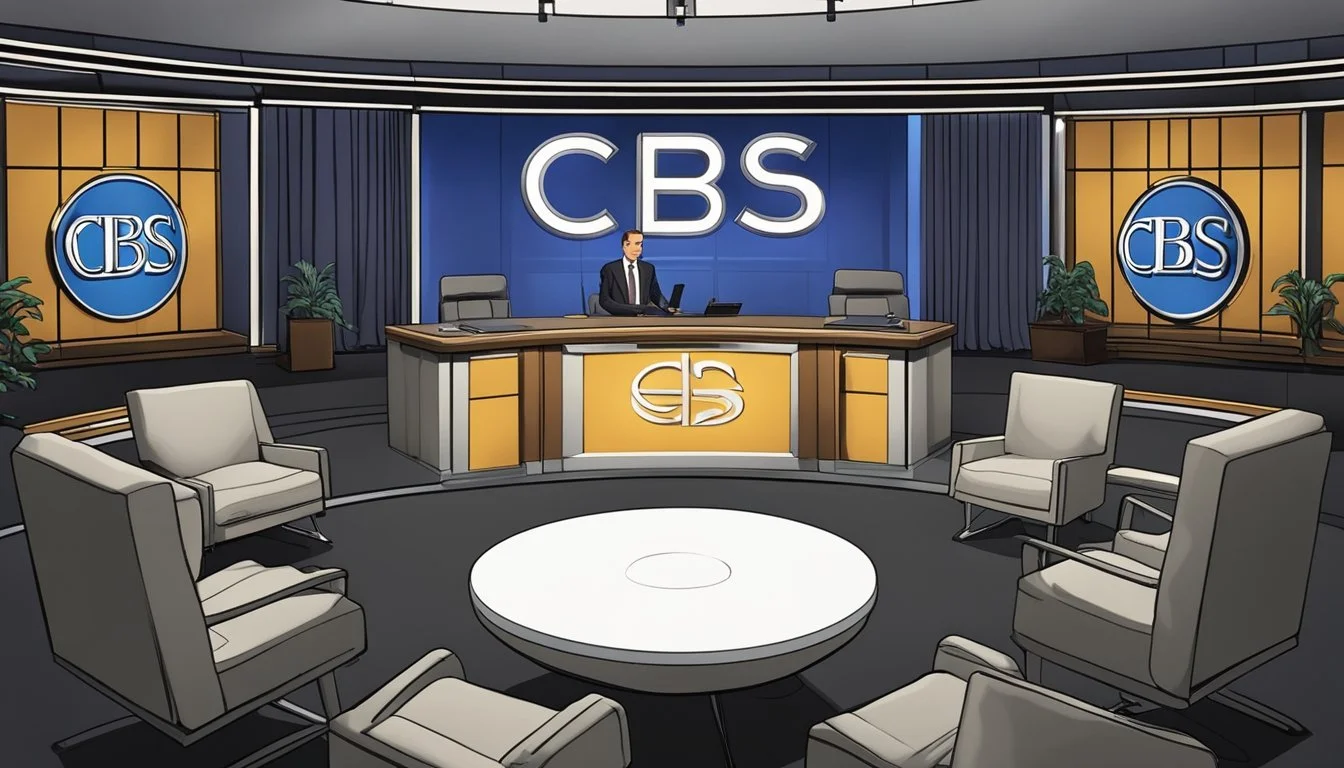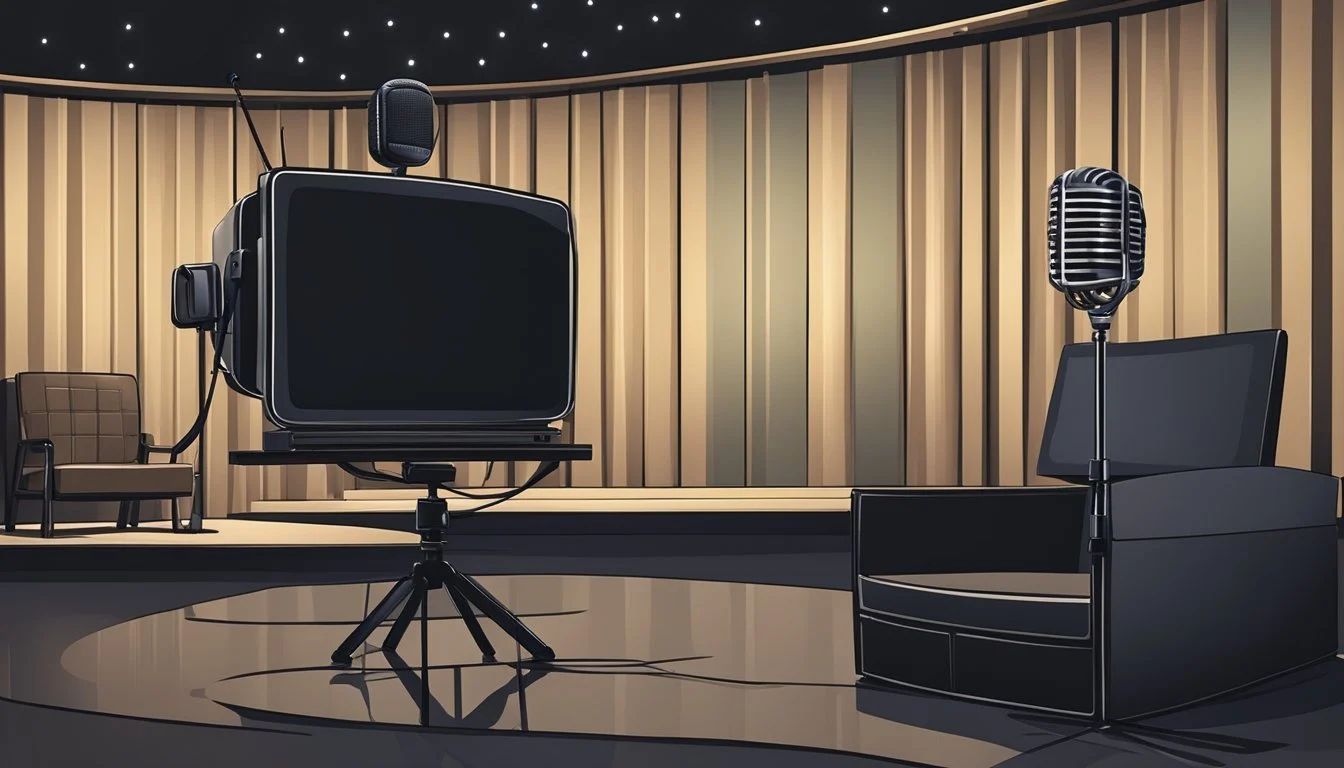Charlie Rose: The Fall of CBS's Longtime Interviewer
Sexual Misconduct Allegations End Storied Career
Charlie Rose, once a prominent figure in American journalism, saw his celebrated career come to an abrupt end in 2017. The longtime CBS and PBS anchor faced multiple allegations of sexual harassment, leading to his swift dismissal from both networks.
Rose's fall from grace marked a significant moment in the #MeToo movement, highlighting the pervasive nature of workplace misconduct in the media industry. For decades, he had been a respected interviewer, known for his in-depth conversations with world leaders, celebrities, and newsmakers on his eponymous PBS show and as co-anchor of "CBS This Morning."
In the years following his dismissal, Rose has largely retreated from public life. However, he has recently reemerged, conducting interviews for his own website. This attempt at a comeback has been met with mixed reactions, reigniting discussions about accountability and redemption in the post-#MeToo era.
Charlie Rose's Background
Charlie Rose built a prominent career in broadcast journalism over several decades, becoming one of America's most recognizable interviewers. His journey spanned from small-town roots to the highest echelons of network television.
Early Life and Education
Charles Peete Rose Jr. was born on January 5, 1942, in Henderson, North Carolina. He grew up in a close-knit family, with his parents running a country store.
Rose excelled academically and attended Duke University in Durham, North Carolina. He earned a bachelor's degree in history in 1964 and later a law degree from the Duke University School of Law in 1968.
His time at Duke sparked an interest in media and politics that would shape his future career path.
Media Career Development
Rose's entry into journalism began in New York City, where he worked as a freelance reporter. He quickly gained experience covering a variety of stories and honing his interviewing skills.
In 1972, Rose landed a job as weekend reporter for WPIX-TV in New York. This role provided valuable on-camera experience and exposure to the fast-paced world of television news.
Rose's career took a significant turn when he became the managing editor of the PBS series "Bill Moyers' International Report" in 1974. This position allowed him to develop his skills as a producer and interviewer.
Rise to Prominence
Rose's breakthrough came in 1991 when he launched "Charlie Rose" on PBS. The show's one-on-one interview format quickly gained popularity and critical acclaim.
His probing yet respectful interview style attracted high-profile guests from politics, arts, and business. The show's success led to Rose becoming a familiar face on American television.
In 2012, Rose joined "CBS This Morning" as co-anchor, expanding his reach to a broader audience. He also contributed to "60 Minutes," further cementing his status as a respected journalist.
Rose's work earned him numerous accolades, including Emmy Awards and a Peabody Award. His interviews became known for their depth and ability to provide unique insights into his subjects.
CBS Tenure and Acclaim
Charlie Rose became a prominent figure at CBS, known for his insightful interviews and contributions to flagship programs. His work elevated the network's journalistic reputation and garnered widespread recognition.
Contributions to '60 Minutes' and 'CBS This Morning'
Rose joined CBS News in 1984 as a correspondent for '60 Minutes'. His in-depth reporting and ability to secure high-profile interviews quickly made him a valuable asset to the program. In 2012, he expanded his role at CBS by co-anchoring 'CBS This Morning'.
On '60 Minutes', Rose covered a wide range of topics, from politics to entertainment. His segments often featured exclusive interviews with world leaders and celebrities. At 'CBS This Morning', he brought a more serious journalistic approach to morning television, helping to differentiate the show from its competitors.
Interview Style and Impact
Rose's interviewing style was characterized by thoughtful questions and a calm demeanor. He often conducted long-form conversations, allowing subjects to explore topics in depth. This approach set him apart in an era of sound bites and rapid-fire questioning.
His interviews frequently made headlines, as he skillfully drew out new information from his guests. Rose's ability to create a comfortable atmosphere led many public figures to open up in ways they rarely did with other journalists.
Notable interviews included:
Heads of state
Business leaders
Cultural icons
Awards and Acknowledgments
Rose's work at CBS earned him numerous accolades throughout his career. His contributions to journalism were recognized by both the industry and his peers.
Awards:
Emmy Awards (multiple)
Peabody Award
Walter Cronkite Award for Excellence in Journalism
Rose's interviews were often cited for their impact and depth. He was praised for carrying on the tradition of serious broadcast journalism established by figures like Edward R. Murrow.
His program 'Charlie Rose' on PBS, though separate from his CBS work, further cemented his reputation as one of television's premier interviewers.
The Scandal
Charlie Rose's career came to an abrupt end in November 2017 amid explosive allegations of sexual misconduct. The respected journalist faced multiple accusations that spanned decades and ultimately led to his dismissal from major networks.
Initial Sexual Harassment Allegations
On November 20, 2017, The Washington Post published a report detailing allegations of sexual harassment against Charlie Rose. Eight women accused Rose of inappropriate behavior, including groping, unwanted sexual advances, and lewd phone calls.
The accusations dated back to the late 1990s and continued into 2011. Many of the women were employees or aspiring journalists seeking career advice from Rose.
Several incidents allegedly occurred at Rose's New York City apartment or while traveling for work. The women reported feeling shocked and humiliated by his actions.
CBS and PBS's Response
CBS News and PBS acted swiftly following the allegations. Both networks suspended Rose on November 20, 2017, the same day The Washington Post article was published.
The next day, November 21, CBS News fired Rose from his position as co-host of "CBS This Morning" and contributor to "60 Minutes." PBS also terminated its relationship with Rose, canceling distribution of his long-running interview show.
Bloomberg LP, which had been airing Rose's show, also cut ties with the journalist. The rapid response from these major media outlets signaled the severity of the allegations.
Impact on Career and Legacy
The sexual misconduct scandal effectively ended Charlie Rose's five-decade career in journalism. His fall from grace was swift and decisive, tarnishing his reputation as a respected interviewer.
Rose issued an apology, acknowledging his "inappropriate behavior" while disputing some allegations. However, the damage to his career was irreparable.
Additional women came forward with similar accusations in subsequent months. In 2018, CBS News faced criticism for allegedly failing to address Rose's behavior earlier.
Rose's awards and honors were rescinded by several organizations. His longtime status as a trusted public figure was shattered, leaving a complicated legacy marred by serious misconduct allegations.
Public Response and Legal Implications
The revelations about Charlie Rose's misconduct sparked widespread reactions and had significant legal consequences. Multiple women came forward with allegations, leading to legal proceedings and settlements. The media landscape shifted in response to these events.
Reactions from Women and Colleagues
Gayle King, Rose's former co-host on CBS This Morning, expressed shock and dismay at the allegations. She stated on air, "I am really struggling because how do you reconcile your love for someone with the revelation that they have behaved badly?"
Many women in the media industry shared their own experiences of harassment. The New York Times and The Washington Post published numerous accounts from women who had encountered similar behavior.
Colleagues at CBS and PBS distanced themselves from Rose. Some expressed regret for not recognizing or addressing the problem sooner.
Legal Proceedings and Settlements
CBS faced legal action from women who accused the network of failing to prevent Rose's behavior. In 2018, the company reached a settlement with three former employees who had worked with Rose.
The terms of the settlement remained confidential. However, it highlighted the legal risks organizations face when they don't address sexual harassment effectively.
Rose himself faced potential lawsuits from accusers. The legal implications extended beyond financial settlements, affecting his career prospects and public image.
Evolving Media Landscape
The Rose scandal contributed to broader changes in the media industry. Networks implemented stricter policies on sexual harassment and workplace conduct.
Many organizations conducted internal reviews of their reporting procedures. There was a push for greater transparency and accountability in addressing misconduct allegations.
The incident also sparked discussions about power dynamics in media. It led to increased scrutiny of how networks handle star talent and their behavior behind the scenes.
Personal Life and Influences
Charlie Rose's personal relationships and interests shaped his career as an interviewer. His encounters with influential figures across various fields expanded his cultural knowledge and interview style.
Relationships and Private Interests
Charlie Rose maintained a long-term relationship with Amanda Burden, urban planning expert and daughter of socialite Babe Paley. Their partnership lasted from 1993 to 2006. Rose's personal interests extended beyond journalism, encompassing art, culture, and entertainment.
He was known for his extensive art collection and frequently attended high-profile cultural events. Rose's Manhattan apartment and Long Island home served as gathering places for celebrities and intellectuals, reflecting his wide-ranging connections in various fields.
Significant Interviews and Personalities
Rose's interview subjects spanned the worlds of politics, business, and entertainment. He conducted notable conversations with Barack Obama, Vladimir Putin, and Oprah Winfrey. His 2013 interview with Syrian President Bashar al-Assad garnered international attention.
In the business realm, Rose spoke with influential figures like Apple CEO Tim Cook. His entertainment interviews included in-depth conversations with Leonardo DiCaprio and other Hollywood stars. These diverse interactions enhanced Rose's reputation as a versatile and insightful interviewer, capable of engaging with leaders across multiple disciplines.
The Aftermath and Media's Role
Charlie Rose's downfall sparked widespread discussions about workplace conduct and power dynamics in the media industry. It highlighted the ripple effects of the #MeToo movement across entertainment and journalism.
Reflections on the #MeToo Movement
The allegations against Charlie Rose emerged amid a surge of #MeToo revelations. His case underscored how even respected figures in media could face consequences for misconduct. The swift action by CBS and PBS in suspending Rose signaled a shift in how networks handled such accusations. This incident, along with others involving high-profile men like Harvey Weinstein, prompted media organizations to reassess their policies and practices.
Shifts in Television and Cultural Conversations
Rose's departure from CBS This Morning created a void in morning television. It led to broader conversations about representation and diversity in news programming. Networks began to prioritize more inclusive hiring practices and on-air talent. The incident also sparked discussions about journalistic ethics and the responsibility of media figures. It highlighted the need for more robust reporting on sexual harassment within the industry itself.
Legacy and Impact on Journalism
Charlie Rose's career in journalism left a significant mark on the industry, despite its controversial end. His innovative approach to long-form interviews influenced broadcast journalism and public discourse.
Career Highlights and Contributions
Charlie Rose gained prominence as a skilled interviewer on CBS and PBS. His eponymous show featured in-depth conversations with world leaders, artists, and intellectuals. Rose's calm demeanor and probing questions became his trademark.
He conducted notable interviews with figures like Steve Jobs, Vladimir Putin, and Barack Obama. These conversations often provided unique insights and made headlines. Rose's work earned him numerous awards, including Emmys and a Peabody.
His style emphasized substance over sensationalism. This approach helped elevate public discourse on complex topics. Rose's program became a platform for educational and thought-provoking content.
The Future of Investigative Journalism
Rose's downfall highlighted the importance of ethical conduct in journalism. It sparked discussions about power dynamics and accountability in media organizations. Many newsrooms reassessed their cultures and policies as a result.
The incident underscored the need for diverse voices in journalism. It led to increased opportunities for women and underrepresented groups in broadcasting. This shift aims to bring fresh perspectives to investigative reporting.
Digital platforms are now reshaping long-form interviews. New formats emerge, inspired by Rose's in-depth approach but adapted for modern audiences. These changes reflect evolving viewer preferences and technological advancements.







